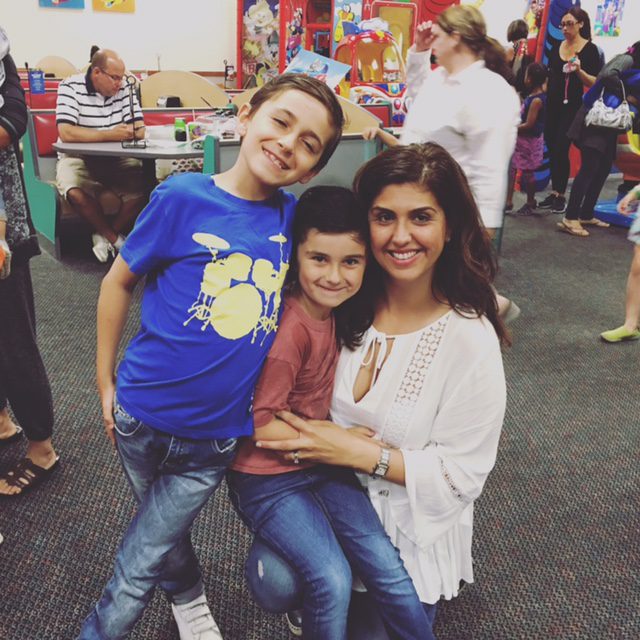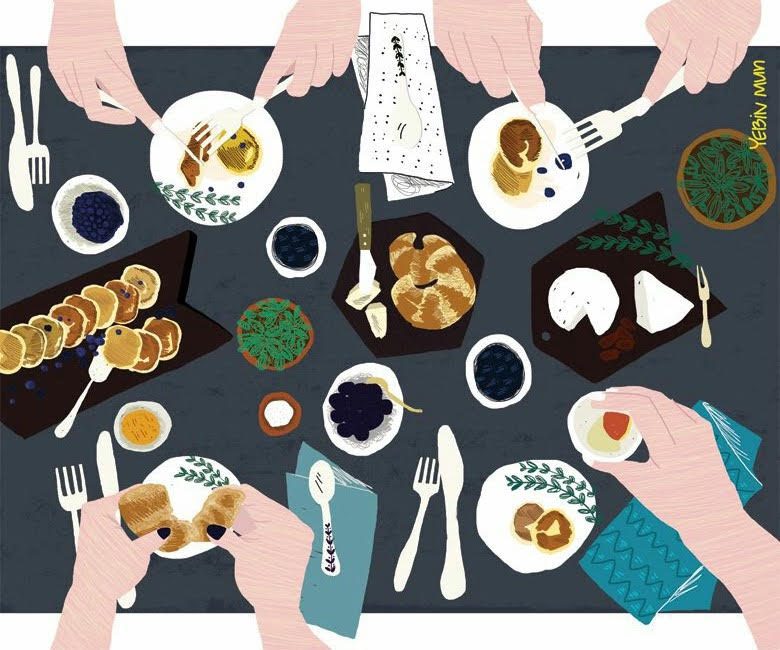Part I: THE “SPECTRUM”ANXIETY
By: Natasha Tsagogeorgas
Exactly one decade ago, the universe blessed me with a sweet baby boy. Every first-time momma knows the feeling of instant love and devotion I felt when I first laid eyes upon him. He had lashes longer than a metre that protruded from his dark eyes. He had a full head of beautiful dark hair and the sweetest little voice I’d ever heard.
To me, he was absolute perfection.
I was fortunate enough to be able to choose whether or not to stay home with him; and I did so for 4 years. I’ve thought a lot about those early years. They were somehow uneventful and magical all at the same time.
He was a happy, healthy, charismatic child who loved music, puzzles, Dora the Explorer, Thomas the Train and his family.
Before we knew it, he was enrolled in kindergarten. During our first parent-teacher night, his teacher expressed that he wasn’t quite adjusting to the program as well as she’d expect – given it was November. She suggested we “monitor it” and discuss at a later date.
In January she called me one day, after the lunch hour. I remember because I had put down the baby (my younger son) for a nap. She started talking about how my eldest wasn’t “budding” and that he seemed to play with the same sorts of toys repetitively.
He didn’t like to play with the other kids. He wasn’t happy during transitions. He was amazing at puzzles.
It was 2010 and the term “Autism” had come into its own. I, like every other new-age mom, was well-read on the myriad of potential disorders to look for in my developing child. I knew where the teacher was taking this conversation.
That day, life threw me my first severe throat-punch and it knocked the wind right out of me. I felt my heart pound harder than I ever thought possible and my body began to tremble and sweat at the same time. (I didn’t know it then, but I was having a massive panic attack)
How did I not see what was in front of me all along? How could I have missed it? Why were all his doctor’s checkups so successful? Why hadn’t anyone else mentioned these concerns (including his pre-school?) Was I crazy? Was the school crazy? Was everyone fucking crazy? Most frighteningly, was my child “sick”?
I wish I could say that I took my child to a doctor, he got diagnosed, and I went about the business of getting on with life.
But it didn’t happen like that. Throughout the course of the next 5.5 years, my son was put in front of approximately 14 well-intending professionals who told me jack-shit about him. Pediatricians, speech pathologists, psychologists, social skills trainers, child development watcha-ma-call-ems, etc. The common answer I got was: “meh, he’s just a little quirky”.
Throughout this period, I struggled greatly with the notion that while I desperately wanted to help my child, I also didn’t want him to feel like a fucking lab-rat. I was very careful to make every interaction between my son and each of these people as innocuous as possible.
I spent those years watching him like a hawk – looking for any sign that he had autism and looking for any sign that he did not have it. I would frantically ask him if he played with anyone at school that day. I became obsessed with not allowing him to engage in any activities which were remotely repetitive. I’d rejoice when I saw him engage in pretend play and I’d be devastated when I saw him not participate with his peers. Most days would end in me crying myself to sleep, but not without first playing over every horrible scenario in my head of what his future would look like.
I’ll talk about the outcome in part-two of this post, because this first part is not about autism. It is about my road through panic and anxiety hell.
When I describe the feelings I had in those early days, the only reference point I have is to equate it to a funeral. I felt like Death had come into my home and someone robbed me of my little baby boy with the magical dark eyes. They stole every dream I had for him. I didn’t even know who to hate for this injustice, but I felt the hate nonetheless.
On second thought: it wasn’t hate, it was desperation.
I’d wake up dreading the day. Getting out of bed to take care of the baby felt like torture, because it only took away from my one real reason for living, which was worrying about Autism.
I spent HOURS researching online – where all the best and most credible information lives, of course. I didn’t want to send my child to school because it was full of awful people who were waiting eagerly to slap a label on him and define what he couldn’t do. To me, it was the equivalent of sending him to the wolves. (As I sit here writing, thinking about that time in my life still evokes a physical reaction in me).
Given I’d never experienced anything like this, I thought my reaction was a normal part of fearing for the well-being of your child. I dismissed any thought that this was rooted in anything other than maternal love and passion.
Months later, my family doctor finally got through to me with one sentence: “Natasha, I don’t think it’s him…this is about you”. She’d softly suggested it before, but I thought I knew better than her. As far as I was concerned, my mother’s instinct had kicked into gear and my worry was justified. Prior to that day, I’d written off her concern with polite: “yeah, sure’s”.
After resisting the notion that I needed help for almost 2 years, I finally sought medical attention. I became “that girl” (as my stigmatized brain called it) and went to see a therapist. At first I thought it would be a waste of time, but when I sat down for the first session and cried uncontrollably during my opening sentence, I knew that the time had come to face The Beast head-on.
I spent the first 3-months in weekly sessions and then bi-weekly for the next year and a half. I am typically pretty chill, so it stunned me that the anxiety had gotten so bad I needed such intensive intervention.
My doctor also prescribed a light dosage of anti-anxiety medication, which she explained would help my body to not metabolize serotonin (the “feel good” hormone) so rapidly. According to her, patients with anxiety typically use up their stores of serotonin at much faster rates than the average person. This was hard for me to accept, but I was committed to the treatment in its entirety.
I reluctantly took the medication one evening and when I woke up the next day, the sun was shining. It sounds like bullshit, but I really cannot explain it any other way.
Four years have passed since that awful storm. It’s been a process involving a lot of learning and soul-searching, but these days, I have the anxiety pretty much under control. Here is what I’ve learned along the way:
- There is no shame in having a mental health problem – it took me so long to get help because I was my own biggest enemy. If you had a heart condition, you’d go see a doctor, right? There is no difference with your brain. Don’t be embarrassed.
- Get help – you cannot do this alone. Your brain is a super-complicated organ. You need to see professionals who are trained in how the brain works.
- Lean on your support system – When I count my blessings, this is the area where they are plentiful. I really hit the husband jackpot. During this ordeal, he was patient, loving and would talk me down from hysterics more times than I care to remember. I also have wonderful parents and in-laws who would drop in on me to make certain that the household duties were taken care of and really just to keep me company. Finally, I have a handful of amazing friends who would take a bullet for me. They cried with me, pep-talked me and helped me see that there was beautiful light at the end of the tunnel.
- Accept that anxiety is part of who you are – I have come to terms with the fact that I will have to live with some form of anxiety for the rest of my life. It is a disorder, which means it’s in my hard-wiring. The fact that it took 34 years to come out so acutely doesn’t matter. It’s here and that’s ok. I’ve learned to manage it and – for the most part – it is does not affect my day-to-day anymore. But I’ve absolutely learned to recognize when it “comes in the room”.
On that note…..
5. Understand what triggers you – Most people who suffer from anxiety and panic have a specific trigger. For me, during those first days, it was just the word “Autism”. I couldn’t hear it without a visceral reaction. These days, it’s not the word itself but more so hearing/reading stories of people (who resemble my son) and what their futures look like.
The more you are aware of your trigger(s) the more you can separate what is rational thought versus what is being driven by panic and anxiety.
I know you’re out there, mama. Frantic and afraid. Unsure of the future and researching the shit out of Google. Fearing the worst but praying that somehow you’ll wake up and all will be ok.
I’m here to tell you that it’s all going to be ok. This, too, shall pass. And whatever your trigger for anxiety is, things have a way of settling into how they should be, I promise you.
***
My journey continues tomorrow here on The Rebel Mama when I discuss my experience navigating the confusing waters of Autism Spectrum, diagnosis, treatment, therapists, assessments and what they all mean for my family…

***
Follow The Rebel Mama on Instagram | Facebook | Twitter
*****SHOP THE REBEL MAMA*****
Feeling like a hot hormonal mess? We got you: Dear Anxiety, Mom Guilt, How To Not Be A Judgemental Cow, How to Not Lose Your Shit on the Daily, Motherhood: You Can Say It Sucks, The Body Image Battle, Postpartum Depression: The Journey Pt. 2, Brave New Girl, Regretting Your Kids.






Trackbacks/Pingbacks